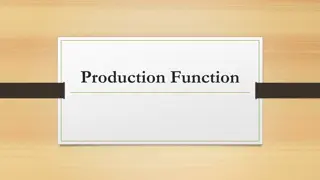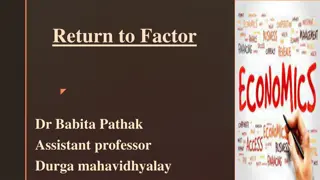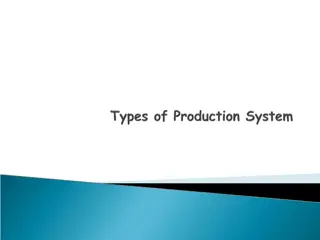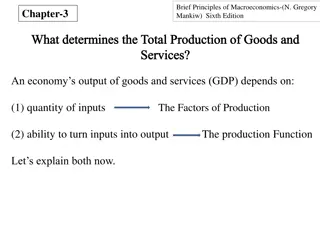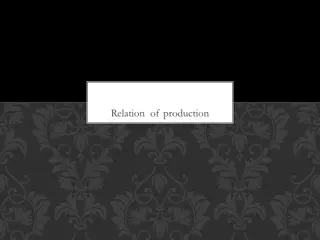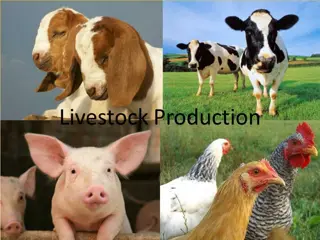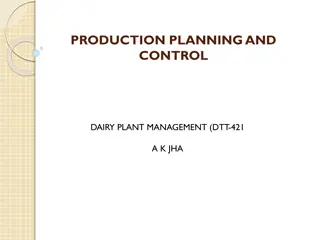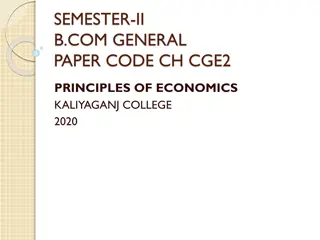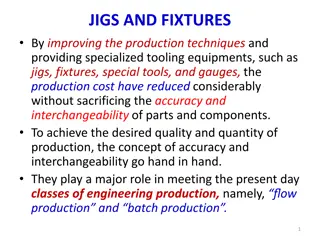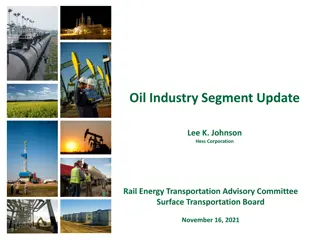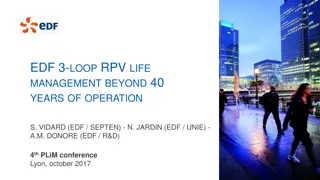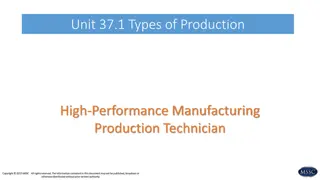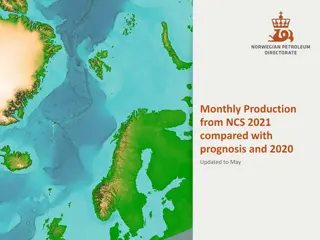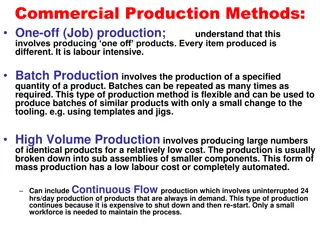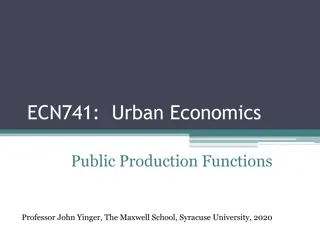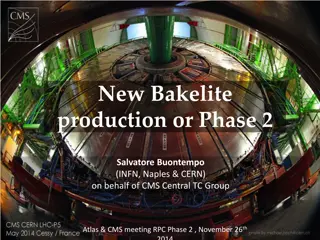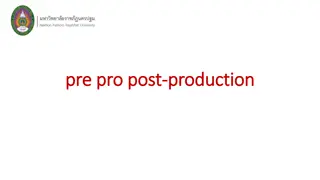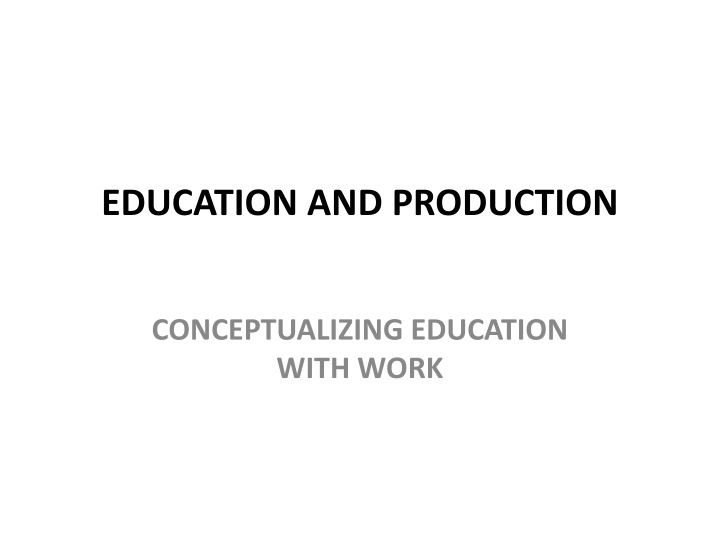
Conceptualizing Education through Work: A Cultural Perspective
Explore the intricate relationship between education, work, and culture, tracing the evolution of knowledge and skills across civilizations. Discover how labor processes have shaped human communication, civilization, and the development of language over time.
Download Presentation

Please find below an Image/Link to download the presentation.
The content on the website is provided AS IS for your information and personal use only. It may not be sold, licensed, or shared on other websites without obtaining consent from the author. If you encounter any issues during the download, it is possible that the publisher has removed the file from their server.
You are allowed to download the files provided on this website for personal or commercial use, subject to the condition that they are used lawfully. All files are the property of their respective owners.
The content on the website is provided AS IS for your information and personal use only. It may not be sold, licensed, or shared on other websites without obtaining consent from the author.
E N D
Presentation Transcript
EDUCATION AND PRODUCTION CONCEPTUALIZING EDUCATION WITH WORK
CONCEPTUALIZING EDUCATION WITH WORK In the course of time man accumulated and improved knowledge and skills through the powers of communication and inventiveness, culture was developed. Since the education process involves the development and transmission of man s ideas, knowledge, values and generation to the next, education is in this sense cultural transmission. This means, it is education that fosters civilization and promotes the refinement of culture. skills from one
CONCEPTUALIZING EDUCATION WITH WORK . It is obvious that within culture one important feature is work; also termed labor process. Education and civilization in turn distinguishes man from animals. It is the process of labor that resulted in the articulate speech in order to facilitate cooperation among other things. Speech is the symbol of conceptualization of reality expressed in body gestures or in verbal terms.
CONCEPTUALIZING EDUCATION WITH WORK . The more man sophisticated the more his terminology widens The body of knowledge that man acquires creates a capacity in him to interact with the man around. Human interaction with the world around is termed creative when it is purposeful. Purposeful interaction knowledge and environment is socially termed labor. kind becomes more between human
CONCEPTUALIZING EDUCATION WITH WORK . The term is used to express purposeful human activity; the result of greater human thought. The parallel development of man s head and brain resulted into the use of tools and speech. Only man has learned to manipulate natural objects into tools and fashion them according to his needs. This required the use of limbs and intelligence.
CONCEPTUALIZING EDUCATION WITH WORK . Intelligence and speech in man which are inseparable assisted in the development of language. This means learning and perfection of speech over periods of time emanated from a labor or a work process of one form or another.
CONCEPTUALIZING EDUCATION WITH WORK . From historical accounts, education and civilization in ancient societies like Egypt, India, China and others were linked with activities at focal points upon further improvement knowledge and skills resulting from experiences, they prospered over the centuries. For example, the ascent civilization of Egypt resulted from agricultural activities around the River Nile. peoples economic through more
CONCEPTUALIZING EDUCATION WITH WORK . Their education system fostered among other things development of complex agricultural science, creating irrigation and food control networks. Therefore, it seems that the educational effect of the learned civilization complex of the society resulted into further development of the productive sources that moved the human societies through major revolutions to modern times.
CONCEPTUALIZING EDUCATION WITH WORK . Through agricultural and industrial revolutions for example, education has gone through different phases as new social economic systems emerged. Social economic needs have always propelled societal members to strive towards gaining and developing new knowledge, skills, values and attitudes to meet the emerging new challenges
CONCEPTUALIZING EDUCATION WITH WORK . This is why Dewey (1897) viewed education as not separate from life but it is life itself. Dewey argues that the school should produce on the child s plane the typical doings and the activities of the wider, more mature society it is finally to enter. Basically, treating the school as a miniature of the wider community.
CONCEPTUALIZING EDUCATION WITH WORK . Dewey argued that it is through production and creative use of things that valuable knowledge is generated. He emphasized that the education process in school should be centered on work and activity on the concrete, just as the adult community work on the concrete. This leads to the accumulated levels of knowledge and experiences.
CONCEPTUALIZING EDUCATION WITH WORK . Generally there can not be education without work likewise there cannot be work that is worth while that has not drawn on proper and relevant education which gives it creative and social meaning. Yet there is no education and production without education and work. This means work as a dimension of education should be productive to give credibility to the outcome of the pedagogical process.
CONCEPTUALIZING EDUCATION WITH WORK . The relationship between productive work demonstrates position of education in economic production and general societal productivity. Hence, it is argued that an improved quality of education leads to production and hence national development measured in GDP and a range of social economic innovations (Nyere, 1968; Moshi, 1985). education and significant increased economic
CONCEPTUALIZING EDUCATION WITH WORK . In this sense basic education for the majority is based on the labor productivity Its provision raises in terms of raising and improving cognitive abilities and dispositions of workers in various categories. The higher and more sophisticated any sector of the economy grows the more it continues to depend on the capacity development and competency of the resident human resources. In 1967 education aimed at integrating education and productive work in schools so that theoretical classroom training had a practical productive effect in the field.
Education with production Scholars productive work, self reliant, creativity, work experience etc. are used to express the notion education with production. Education with productive work may refer to any kind of socially or economically useful activities that students undertake It ranges from their own self service, in maintenance of their own living quarter to community services as in case of participating in village development projects and voluntary work with a surrounding community. show that terminologies such as
Education with production Education with productive work may also denote concrete actions entailing production of goods, articles and services as a subsidiary activity or as an alternative among practical options open to an educational institution. Education with productive work would broadly constitute both mental and physical work that is socially useful.
Education with production Any work should be considered productive so far as there will be evidence of tangible materials/services produced Although there is a relationship between education with production (EWP) and vocationalization of education, the two are different
Education with production Vocationalization of education aims of making education more practically oriented and a proper preparation ground for more or less specific skills in anticipation of the working life after school. On the other hand EWP based on socialist ideology inculcate positive manual work dimension as a way of integrating education and work and school and community.
Education with production While vocationalization aims are economic in nature, those of EWP are socially and morally oriented; though aims at generating income that can help to defray some of the running costs unlike vocationalization that is not concerned with reduction of costs. EWP follows the UNICEF definition of education that it is any activity that is engaged in by students and results in income generation or in capital and operational cost savings.
Education with production EWP may receive assistance from parents or community members in the form of technical advice, participation in planning and management, contribution towards needed investment and contribution of labor. The activity may or may not be directly linked to the instructional curricular and the assessment of the academic performance of the learner may not be affected by the product activity. The activity may or may not take place within the educational institution.
Education with production However, the definition excludes those practical activities in vocational institutions. Education with production may eventually lead to self employment and also assist in equipping learners with better work habits and mental skills as a means of promoting the potential and productivity of future workers in society, whether these be wage-employees or self employed entrepreneurs. This is the basis of education for self reliance.
Education for self-reliance Nyerere set out his vision in Education for Self Reliance that: Education had to work for the common good, foster co-operation and promote equality. At a national level, self reliance means, the absence of undue economic and cultural dependence on other nations which in the end undermines the worth, respect and self dignity of people.
Education for self-reliance It guaranteed a real possibility of a country to develop itself in free and equal cooperation with other nations and as one of the respected other in the world community. At the individual level, to be self-reliant demands condition of equilibrium with the physical and social world without been too dependent on others or exploitative of others. The following changes were proposed:
Education for self-reliance It should be oriented to rural life. Teachers and students should engage together in productive activities participate in the planning and decision-making process of organizing these activities. This means schools should not produce passive workers but people who can think for themselves, make judgment on all issues affecting them, interpret the decisions made through democratic institutions of our society and implement them in the light of the peculiar local circumstances where they happen to live. and students should
Education for self-reliance Productive work should become an integral part of the school curriculum and provide meaningful learning experience through the integration of theory and practice. The integration of education with productive work was for instilling in the learners mind an understanding that they were being prepared to be willing skilled workers (farmers, carpenters, metal workers, fisher men etc.) and not overseers of others as such. The focus was that in a socialist society, socialists are workers and by introducing work in schools socialists working habit was being inculcated into the learners.
Education for self-reliance The importance of examinations should be downgraded. But in so working with the community the students are not expected to act as robots. Rather they ere expected to learn by doing and contribute creatively to the methods and skills of doing things. Children should begin school at age 7 so that they would be old enough and sufficiently mature to engage in self-reliant and productive work when they leave school.
Education for self-reliance Students should become self-confident and co- operative, and develop critical and inquiring minds. Critical thinking means the ability to analyse the evidence for facts and assumption underlying assertion; the ability to demand evidence in support of conclusions which one is being pressed to accept; the ability to select significant words and phrases used in discourse and to demand their careful definition.
Education for self-reliance Education for self reliance should be kind of experience that offers knowledge, skills, values, and attitudes that not only can be demonstrated and adopted but also can be applied to real life situations in solving problems or stimulating new ways of doing things; the curriculum should prepare the child not only for the actual society as it exists today but also for the ideal society or society as it ought to be by the time the child will have become an adult.
Education for self-reliance The relationship between the school and the community is supposed to be symbiotic in that while the school was expected to make at least a physical economic-material contribution to the surrounding community, community in turn expected to assist in inculcating a sense of fundamental morality and responsibilities in the young generation. Integration of education with productive work criticizes colonial education which had the following features.
Education for self-reliance Formal education is basically elitist in nature, catering to the needs and interests of the very small proportion of those who manage to enter the hierarchical pyramid of formal schooling Individually and collectively we have in practice thought of education as a training for the skills required to earn high salaries in the modern sector of our economy
Education for self-reliance The education system divorces its participants from the society for which they are supposed to be trained. The system breeds the notion that education is synonymous with formal schooling, and people are judged and employed on the basis of their ability to pass examinations and acquire paper qualifications. The system does not involve its students in productive work. Such a situation deprives society of their much- needed contribution to the increase in national economic output and also breeds among the students a contempt for manual work
Education for self-reliance In the process of implementing education for self reliance the ministry of education directed that: the next higher level institutions, secondary schools; should contribute towards contribution set at 25% of their recurrent annual budget through self reliance projects. from the year 1972/1973 secondary education was diversified into vocational fields of learning. Such as technical, agriculture, economics their upkeep with commerce and home
Education for self-reliance However, this was only possible in government schools while remained optional in private schools especially due to the cost involved. Though it was expected that many school leavers would be absorbed in the labor market, many found not only unemployed but also missed opportunity of being selected for advanced academic in preference first for those who went through non biased (academic) programs. This was intensified by the 1980 s shift from the socialist to capitalist ideology.
Education for self-reliance Judged today, the educational reforms met with some success and some failure. The policies were never fully implemented and had to operate against a background of severe resource shortage orientation to more capitalist understandings of the relation of education to production. and a world and individualistic


